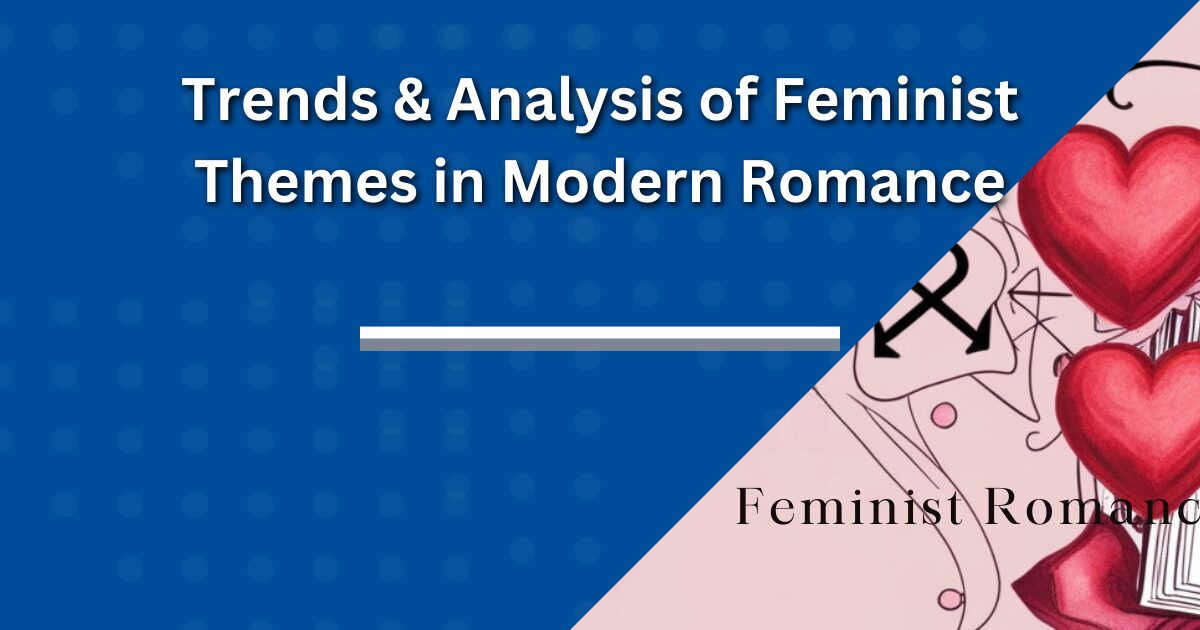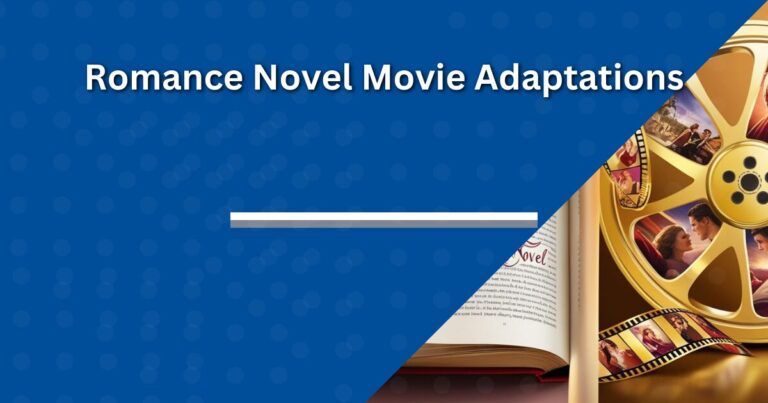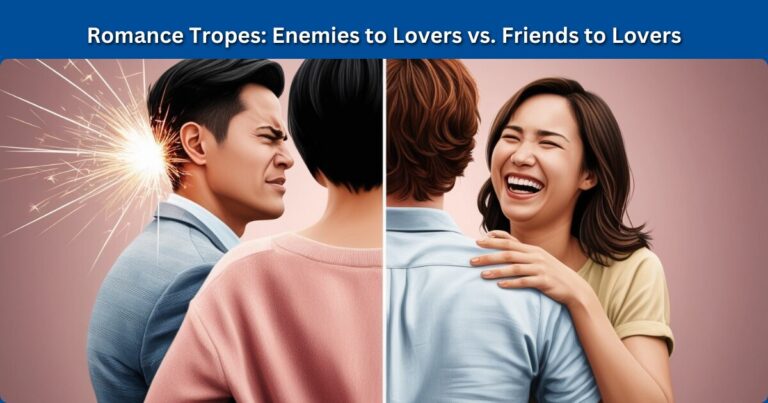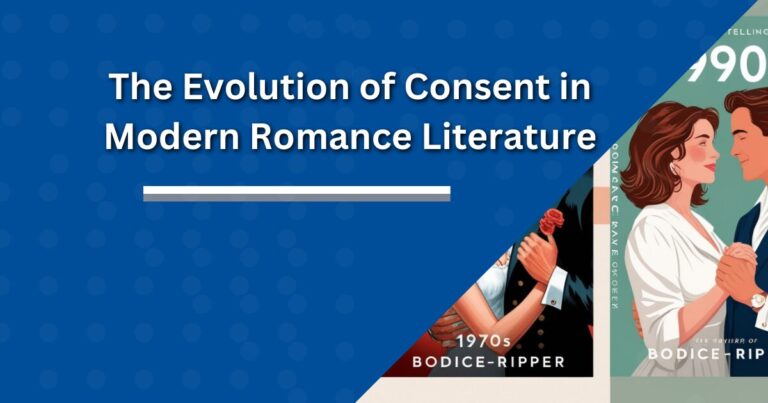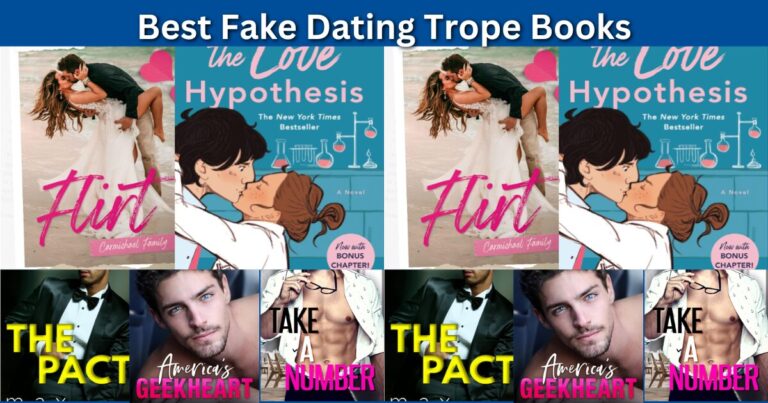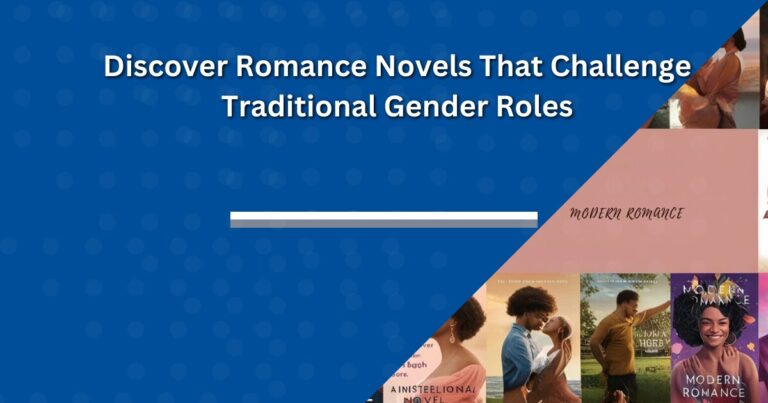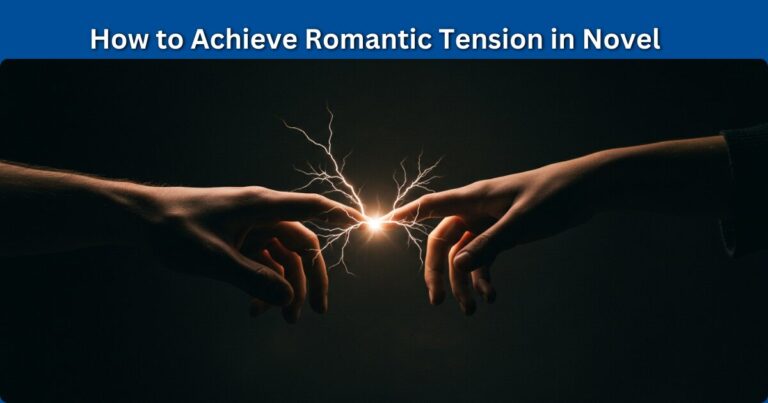Feminist Themes in Modern Romance: Trends & Analysis
With time, love stories have emerged in a new light, and it was about time they did.
Romance subgenres have also evolved; gone are the days when romantic novels were thought to be just soft and inconsequential. They're actually at the helm of social revolution today, especially on the feminist side of the story.
Such a thorough investigation reveals that contemporary romance novels increasingly incorporate heroines who are both leading and strong, demonstrating a change in reader expectations towards characters that represent strength and autonomy.
That's right – the damsel in distress has left the building, and she's taken charge of her own happily ever after.
We shall seek to understand the impact of feminism on the features of contemporary romance literature.
From boardrooms to bedrooms, we're seeing a revolution in how women are portrayed, how relationships are negotiated, and how love itself is defined.
Grab your favorite reading blanket and a cup of tea – we're about to embark on a journey through the pages of contemporary romance that's as empowering as it is entertaining.

Feminist Themes in Modern Romance: Key Takeaways
- Heroines: Strong, diverse, career-driven women.
- Relationships: Equal partnerships, open communication.
- Diversity: More representation of race, sexuality, and body types.
- Sex: Female focus, everything revolves around female pleasure and consent.
- Heroes: Self-sufficient and understanding male partners.
- Beyond Romance: Strong female friendships, workplace issues.
- Influence: Changing reader expectations and publishing trends.
- Opportunities and Challenges: Some traditional readership backlash.
- Recognition: There are more and more nominations and awards for feminist romance writers.
The Evolution of Heroines in Contemporary Romance
So let's proceed with the women who capture our hearts – and by this, I mean the heroines. Remember when I told you about that eye-rolling phase?
Well, part of that was because I was so bored by the same old damsel in distress trope. But things have changed.
I'll never forget the first time I read about a heroine who was a CEO. There I was, curled up on my couch, expecting the usual fare, when BAM.
This woman struts onto the page, running a multi-million dollar company, making tough decisions, and not apologizing for her ambition.
Almost at once, I wanted to tumble from my couch.
As of now, the characters portrayed as heroines in romance novels are as real as the women that I encounter on a daily basis. They are physicians, attorneys, artists, housewives – take your pick.
But that's not all.
They have flaws.
They are flawed, they are human and they have weaknesses. Just like us.
In particular, one trend I really look forward to is having an emphasis on acceptance of body shape and healthy self-love. I remember reading one book where the heroine had a plus-size figure and she killed it.
No “ugly duckling” makeover needed – she was sexy and self-assured from the first page.
If you are someone who's struggled with body image issues, seeing that representation can be incredibly powerful.
However, career and body shape are not all. Present-day heroines have full control of their lives in every area possible.
They are the ones who approach men, express their needs, and will leave a relationship if they feel their needs are not being valued.
It's like watching a friend come of age and find herself – how rewarding that is.

One of the most noticeable changes is the passage from passive to active protagonist. These women are not sitting around waiting for things to come to them. They're making it happen. This is as motivational as one can get.
On a personal note, I've been imitating those fictional women, defending myself at my workplace or pursuing relationships just because I want them.
Well, it is also not a bed of roses. These heroines journey through genuine challenges, coming to terms with professional roles and relationships, managing forceful expectations from society, and tackling injustices. But that's what makes them relatable.
This isn't about women living glorified lives with ideal conditions. It is about women who have problems, and they use problems to build themselves up and come out on the other side tougher people.
The next time anyone tries to brush off the romance genre and its books as “pulp fiction,” politely correct them: they are indeed the most multi-faceted, motivating depictions of women we see in fiction today.
These aren't your granny's romance novels – these are real tales of women who take their fate into their hands and seek love on their own terms.
Redefining Relationship Dynamics
Alright, I'm sure you want to hear about the most interesting part – relationships.
Because let's be honest here, that's the crux of a great romance story, isn't it?
Well, it's time to brace yourself as things have changed in this department.
I recall the very first romance story I ever read where the couple actually had to… discuss their emotions.
I know, sounds unbelievable right?
Gone are the days of brooding heroes and misunderstandings that could be solved with a simple conversation.
And these newer couples?
They hold conversations. And let me tell you, it is steamy.
The inclusion of consent and communication has become significant in today's romance books and it is high time for that.
I think about how sometimes, especially in older romances, the hero would just rush in and kiss the heroine without asking.
These days, it is common to see couples who check in with each other, who ask for consent, and who have dialogues about their needs.
It's not just politeness – it's positively hot.
But it's not only about having sex (however, we will come to that in a while, do not worry). It is about sharing power dynamics in a new relationship.
Some of the couples get to a point where decision-making is shared while, at the same time, encouraging the other's professional pursuits and when it comes to household chores, they are evenly distributed.
It may not be the best definition of romance but believe me there is nothing that can turn you on more than a guy who helps with the dishes without being told to help with them at all.
Call me a feminist if you wish but one of the things that I enjoy is the abolishment of gender roles. Most recently, I read a story where the female protagonist was a successful lawyer, and the male one was a stay-at-home father.
And guess what, it worked!
It was so good to see both participants in a relationship doing nontraditional things and not feeling weird about it.
And let's not forget about non-traditional relationship structures. Polyamory, open relationships, and long-distance love – these are a few of the new forms being incorporated into modern romance fiction.
I am not going to lie, some of these were conservative even for me at the very first. But I have to say that reading about these different types of relationships has broadened my perspective and made me more tolerant.
No, it isn't all picture-perfect. These couples have to deal with more conventional problems such as difficult career paths, family obligations, or societal norms. But that's how it goes in real life. We are not reading stories about fictitious perfect couples but about normal human beings trying to deal with obstacles as a team.
I've found myself applying these lessons to my own relationships: becoming more assertive about my desires and explaining myself to my partner adequately, more open to and respectful of my partner's limits, and even more ready to defy traditions.
Who would have thought that these romance novels have so much to teach?

So next time someone says romance novels give unrealistic expectations about relationships, you can tell them they're reading the wrong books. The modern romance novels are offering us tips and ways into healthier and more equitable relationships. And if that's not romantic, well, I do not know what is.
Intersectionality in Feminist Romance
Good people, intersectionality is a big word that cuts or has a very better meaning. First things first, when I heard this word, well, I will admit, I was forced to check the internet. But once I comprehended it, I also appreciated how important it is, especially in romantic novels.
It is only recently that the romance novel heroines stopped being pale, straight, able-bodied women belonging to the middle or upper social class. And while there's nothing wrong with those heroines, they certainly don't represent all women.
Why is this so?
It's time to explain intersectionality.
I remember the very first time I opened a romance novel that featured a Black woman as the main character. I instantly remembered how I felt then – it was an epiphany.
It presented a scenario that had never occurred to me – the role of race in relationships; the other issues that the heroine had to deal with, and more. It brought me to places that were different from mine.
And shouldn't that be the purpose of good literature?
Since then, I've made it a point to seek out diverse romance novels.
There are ones with Latina heroines, Asian heroes, gay couples, disabled children, and older couples finding love later in life. Each one of the books has been a gateway to a different experience and a different perspective on love and relationships.
One of my most recently read books is a romance novel with a Muslim heroine.
Wasn't it interesting to see how her culture shaped her relationships?
I was transfixed by the history and culture that was so different from my own, all while reading a cute love story.
But that is not to say representation is important just because it is important. The stories are so varied and so rich are the nuances. They delve further into how some aspects of one's identity, may it be race, sexuality, class, or ability, affect one's experience of love and relationships.
There are books addressing sensitive issues, such as an interracial romance set in a contemporary and still racist harbor, or a gay romance in a suburb where queer couples are not so welcome. These stories are not afraid of the hard stuff and that is their strength.
Well, of course, this has not been the case everywhere. As it usually happens – there were some pitfalls; such as authors stepping outside their boundaries, writing things they should not have, or books that tamp out the real thing and instead rely on the stereotypes.
But you know what?
The romance community is growing up and wants to make it better.
And let us not ignore the fact that it also leaves the readers with some feelings. Most of all, the idea of a young girl being able to look at a woman, who appears to be like her, who has gone through what she has gone through, and is now the center of her very own romantic tale, must be a very enticing one.
Yes, it is important for society to see some representation and perhaps it is finally the time for love stories to start to reflect the beautiful diversity of the real world.
So, next time someone tries to dismiss romance novels as all being the same, you can tell them they're missing out on some of the most diverse, inclusive literature out there.
These books aren't just love stories – they're windows into different cultures, experiences, and perspectives.
And in my book (pun intended), that's pretty darn awesome!
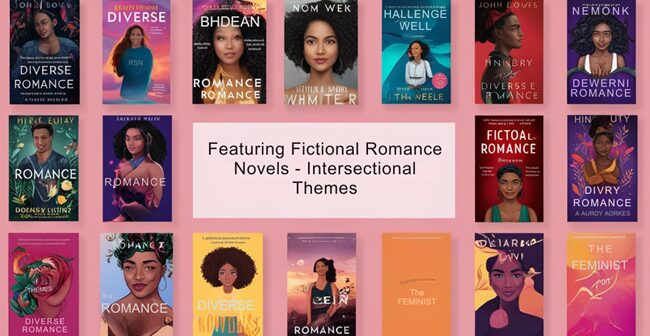
Sexual Agency and Female Pleasure
Now, it gets a bit more steamy, I think we all agree on that. It will be PG-13, so do not be scared, however, sex should not be a taboo topic when discussing feminist literature because romance has a great deal of that too. Because, let me tell you, this department has seen some major progress, and I feel like it was about dang time!
I remember the first time I read a sex scene in a romance novel where the heroine actually… enjoyed herself.
What say you?
For the longest time, there was this trope in the genre of romance novels, where when sex is described, it is all for the pleasure of the man and the woman is just… there (pun intended).
But these days?
Women are seizing power over their sexuality and that is quite radical.
The movement to more sex-positive narratives has been a revolution. We are now given heroines who not only see sexual pleasure but also know how to demand it. The days of shy prude damsels in distress, whom the “man” has to show how to enjoy herself, are over.
These newer heroines?
They are purchasing sexual aids, self-discovery, and self-expression. And I have to say, that is pretty darn empowering too.
One of my favorite recent reads features a heroine, who I was particularly fond of; because she worked as a sex educator. She was not just a sex expert, she was quite sassy and educated the hero as well.
A man being the sex expert in a relationship is one thing but a woman grabbing that title, now that was nice.
But it is not only the sex that matters in a book. These novels also take on discussions that are otherwise considered taboo. Novels that I remember, without a single hint of pretension, tackled the problem of slut shaming quite straightforwardly and criticized the still double standard that exists in every society.
There are novels that delve into the intricacies of sexual orientation or even the process of dealing with one's sexuality after it has been abused. These aren't just bodice rippers – they're stimulating some very important discussions.
The theme of consent culture is very prolific in modern romance novels, as one would see today. I enjoy watching couples who are inquiring and asking for the enthusiastic consent of their partners, and who are also careful not to breach borders. It's not only respectful. It's erotic!
These stories would like you to know that discussing and securing consent is incredibly important in leading a pleasurable and healthy sexual existence.
Of course, it is not all perfect. There is still much work needed to achieve a good representation of different body types as well as a range of sexualities depicted in intimate situations. And sometimes, authors may confuse the liberation of sex as a certain type of sex.
But you know what?
The genre is evolving, learning, and getting better all the time.
In all honesty, I will disclose that these sex-positive, female-centric novels have fostered some changes in my life as well. I have become more open in discussing sex, more aware of my own needs as well as more outspoken about them. It turns out, romance novels are quite the teachers.
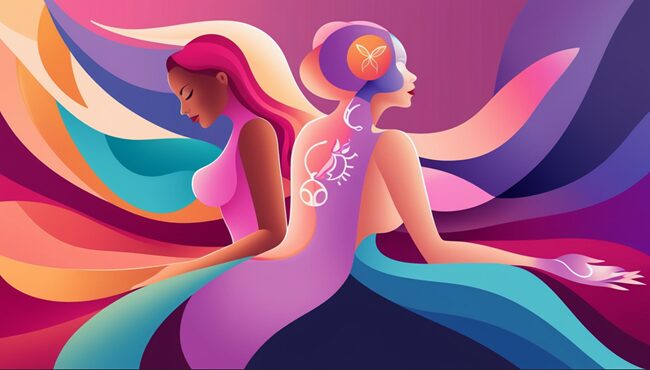
Next time someone uses the term “Mommy porn” to dismiss romance fiction, or unashamedly claims it is anti-feminism at its best, you can correct them because they have totally missed one of the most sex-positive, empowering genres in existence.
It goes beyond just those steamy scenes (although those are nice too) – it's about women reclaiming their sexuality, seeking pleasure, and reconstructing what healthy consensual fulfilling sex means. And I call that feminism because it deserves the label.
Male Characters Through a Feminist Lens
For me, I say let's have a chat about the men. Because let's face it – in a romance novel, the male character aka the ‘hero' is quite instrumental in the equation. And just like our heroines have evolved, our heroes have come a long way too.
I'll never forget the first time I read a romance novel where the hero… cried. There is no way to drop this bomb better than this.
For ages, these wide-chested male figures in romance would remain quiet, stoic bulls… with hardly any emotions on display (except perhaps for the fiery passion of course).
But these new heroes?
They have emotions that they care to flaunt. What a fascinating development it has been to observe the transformation of the male interest in love.
We're seeing more diverse representations of masculinity – sensitive artists, nurturing teachers, stay-at-home dads.
And guess what?
They're just as sexy as the brooding billionaires and rugged cowboys of old-school romance.
One of my favorite trends is the focus on emotional intelligence in heroes. I recently read a new book about a hero who was… a darn therapist, wow! To make matters worse, his emotional intelligence was out of this world.
It is nice to see men being able to embrace their emotions and communicate it without resorting to aggression.
But it's not only about emotions. These new heroes are also more sympathetic to their partners' goals and aspirations. I do admire male heroes who support their heroine's career and do not feel insecure about her achievements and even invest their efforts into realizing her dreams.
That is definitely a step away from the controlling alphas of the past.
However, feminism has become associated with male bashing and this is a concept I don't want to create here. Many modern romance novels are tackling this issue head-on, showing heroes who are unlearning harmful behaviors or challenging societal expectations of what it means to be a “real man”.
It's not always easy to read, but it's necessary.
One book that made an impact on me was about a hero who used to be a ‘player' but was now trying to form a real relationship. His struggle to come to terms with who he used to be and to better himself was quite moving.
It demonstrated that individuals have the capacity to evolve, to improve, to become something more than who they are.
But it is not all that serious and boring. These new heroes can be fierce, manly, and oh yes, very sexy too. The change is that they achieve this with respect to and elevating their partners, rather than attempting to subdue or overpower them.
It is also worth noting that media portrayals of evolved male characters have modified my expectations in the real world as well. I have developed a lower tolerance for toxic behaviors and instead actively seek men who possess emotional intelligence and respect.
Romance novels: raising the bar for men everywhere.
So it is the next time someone rolls their eyes at heroes of romance novels claiming them to be simply over masculine knights, you can inform them that they are actually disregarding some of the most interesting, complex, and compelling male characters of literature today.
Contrary to popular belief, these aren't just sex icons but rather positive portrayals of masculinity, growth, and healthy relationships. And that, in my book, is pretty swoony stuff.
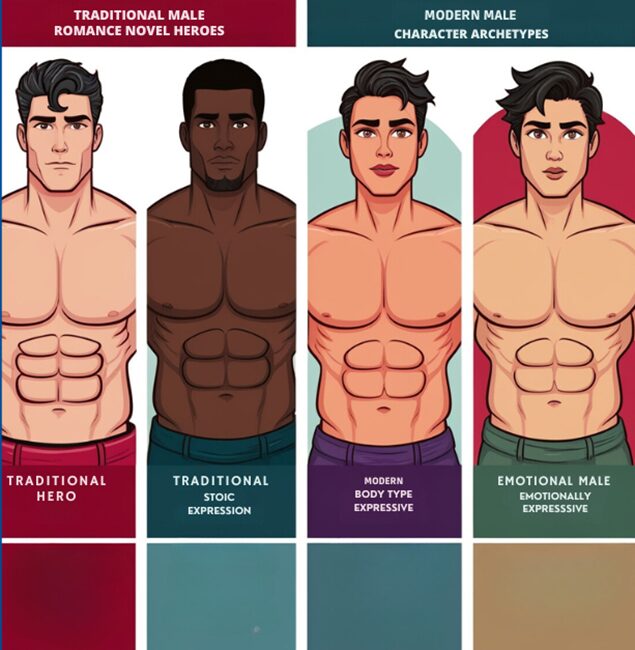
Feminist Themes Beyond the Central Romance
Okay, let's step back a little. Because although the driving narrative has a great love story as we all know that any romantic novel has, there is a lot more going on in these books.
The feminist issues do not stop at just a pair of lovers getting in the focus.
In contemporary romance, one of the trends that I really appreciate is attention to strong female friendships. I still recall reading a book where the heroine's girlfriends were pillars of the story and were almost as critical to the plot as the heroine's relationship with the hero.
These women supported each other, called each other out when needed, and provided a network of love and support that went beyond romantic love. It was heartwarming to witness, and frankly, served to enhance my own regard for my friends even further.
Under this umbrella, there is also a strong representation of women in authority and leading positions. I have come across literature with female CEOs, female politicians, female scientists, and many more.
And the best part is, these women do not play side roles. Their work forms an important part of the story, and we see them struggling with the issues of being a woman in a man's world.
It's motivating, and unfortunately, way too often, very easy to connect with.
One story that I recall vividly is one of the books that dealt comprehensively with the subject matter of workplace discrimination. The protagonist was up against insulting men, lower salaries, and at the same time puzzling over the main mystery of the plot (this was a romantic suspense lol).
It opened my eyes to how such sensitive topics could actually be written about in a love story and it triggered some fruitful debates in my book club.
Family dynamics are another area where feminist themes are making a big impact. I have seen books where the norm of the family being patriarchal is upturned, where women refuse to be oppressed by their overbearing fathers or uncles or break the chains of inter-generational trauma.
It's some powerful stuff and it often rings true for many who have been in such situations themselves.
I remember reading a visitors' memoir that depicted a daughter's reunion with an estranged mother. In coming back to each other, they also dealt with many years of suppressed female rage and societal pressures.
It was a moving in-depth subject of the influence of feminism on the most intimate relationships.
But it is not only such serious topics. I have also read such books where the accomplishments of women are emphasized, where the theme of solidarity of women is infectious, that is, women lifting each other up in every aspect of life, work, family, and relationships.
It is uplifting and, to be honest, is more reflective of my day-to-day life than the meanspirited, frenemy relations between women often portrayed in the media.
The Impact of Feminist Themes on the Romance Genre
The romance genre has had quite a dramatic shift these last few years. I have always been a romance reader all my life and the things I have seen?
Unforgettable.
I'll never forget the day I picked up my first “feminist” romance novel. I was browsing the bookstore, looking for my usual fare of brooding billionaires and damsels in distress, when this bright, bold cover caught my eye. The heroine on it looked… different. Self-Assured.
As though she required no rescue. I was curious and somewhat doubtful, but I thought I would give it a try.
That book, as they say, was a game changer. It was like someone opened a window and I was getting new air when I thought I was in control of a genre. The heroine was a CEO, the hero was supportive without being overbearing, and the story tackled issues I'd never seen in a romance novel before. I was hooked
Since then, I've noticed a huge shift in what readers are looking for. Gone are the days when we'd swoon over a controlling alpha male. Instead, people want partners who are able to talk, people who can draw the line, and people who are not afraid to express themselves.
It's almost as though someone flipped a switch and all of us intelligent, sensible women gasped “Wait! How about treating me with respect instead of me being wooed by a dark, depressed, rich man?”
This change in reader preferences has had a massive impact on publishing trends. Publishers are actively seeking out diverse voices, stories that challenge traditional gender roles, and plots that go beyond the typical boy-meets-girl formula.
I have seen calls for certain works that would include feminism, LGBTQ, or even social change. It is great to watch the development of the genre and its progression towards the wider audience.
Yet, it is true that not all people have taken the said transitions. A few heated arguments have taken place on the internet in the romance communities where I have been active. Such readers insist that these new themes “ruin” the whole genre, and that such light romantic escapism should be free of any sociological aspects.
I understand them, I do. Change can be scary, especially when it comes to something you love.
There is one argument I still remember whilst browsing comments that provoked me quite a few levels and it was when feminist romance was called just “men-hating propaganda.”
Wow! I had to calm my nerves and understand that I should not prevent others from speaking their minds even though I disapprove of it vehemently.
These were, however, critically interesting to look into as they focused on how a genre of romance should be focusing on certain themes and I believe that is a positive development at the end of the day.
Shunning the criticism, feminist romance is being embraced in a very big way. We are witnessing a lot more honor and recognition being accorded to the authors who write on such themes.
The RWA, Romance Writers of America, has been making strides in the recognition of the aspects of different people and the telling of stories that are out of the box. Well, it is about time I suppose.
One of my favorite gold medal moments concerns the case where a feminist romance got a prestigious literary award. It was finally the reward that many of us have secretly waited for long – a romantic novel that is full of intellectual substance and is critically appealing.
Publishers, however, seem to be innovative in their approach to marketing these books. I have seen campaigns that are all about empowerment and show the heroines as strong and in control. What a change from the old Fabio covers.
And here is the thing – and this makes all of these changes in the industry even more exciting – it's well-known how much more is left to be done. There is still no substantial diversity in the conventional romance genre, both in the writer's perspective and in the characters.
And let me not bore you with the ongoing discussion on whether it is possible for romance novels to be feminist at all (Answer: yes!).
As for me, I am enjoying this contemporary definition of romance. It is making me reflect more deeply on relationships, on society, and even on myself and what I wish to find in my partner.
And shouldn't good literature do precisely that?
Make us think, make us feel, make us grow?
And so to all the romance readers who are with me, let's welcome the change. Although a feminist romance is not what you are used to, don't be afraid to read one.
Who knows you may even like it.
And who knows?
It might just help you see love, relationships, and the meaning of a happy ever after in a different light.
Final Thoughts
As we have come to the end of our journey into the exploration of feminist discourse in modern romance, we have to acknowledge that the genre is in the process of a very beautiful metamorphosis.
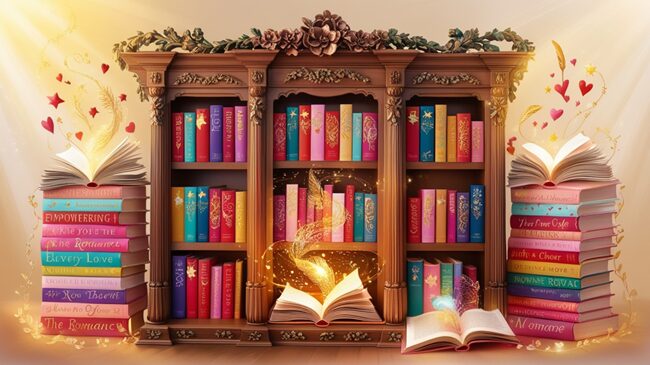
We have witnessed how strong female leads, equal relationships, or inclusivity in stories aren't just affecting narratives – they're affecting lives. These novels are not just a good book to read – they are reflective of development in society and designed for better relationships.
Remember that when you pick up a romance novel that takes head-on outdated thinking conventions, in some way, you are voting with those bookshelves for a better world.
So, what's next on your reading list?
Will it be a CEO finding love without sacrificing her career, or perhaps a diverse cast of characters navigating love in all its beautiful forms?
Or would it perhaps be an ensemble, a tourism spin attempt – ‘Love in all its forms and all its enchanting diversity'?
Whatever you're reading, just remember that you're part of the audience that is re-imagining happily ever after – one woman-centered page-turner at a time.
FAQ
What are some common feminist themes in modern romance novels?
Some of the common themes I have noticed include ambitious and career-driven women as protagonists, equal partnership in marriages, acceptance of all body types and beliefs, and challenging gender stereotypes.
Most of the time, these heroines pursue relationships, create rules, and are not shy to self-prioritise.
How has the portrayal of male characters changed in feminist romance?
Contemporary romantic heroes are relatively more in touch with their emotions and in most cases support the heroine's cause. They're often vulnerable, communicate openly, and challenge toxic masculinity.
You'll see more diverse representations of masculinity, from sensitive artists to nurturing caregivers.
Are feminist romance novels still romantic and sexy?
Absolutely!
Feminist romances can be just as steamy and romantic as traditional ones. They focus on mutual pleasure, enthusiastic consent, and equal partnerships, which many readers find even sexier than old-school power dynamics.
How do feminist romances handle diversity and intersectionality?
Many feminist romances feature diverse characters and explore how factors like race, sexuality, class, and ability intersect with gender. You'll find stories that tackle complex issues while celebrating love in all its forms.
Where can I find good feminist romance recommendations?
Check out book blogs, Goodreads lists, or ask your local librarian. Look for awards like the Ripped Bodice Awards for Excellence in Romantic Fiction, which often highlight feminist and diverse romances.
Don't be afraid to try new authors and subgenres!
